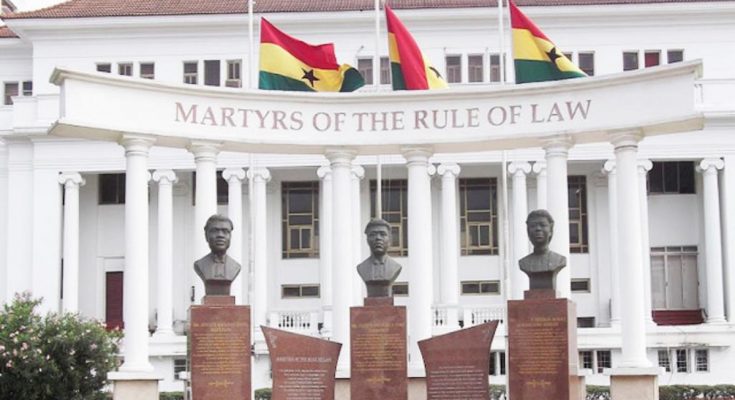The Supreme Court has thrown out a case of discrimination brought against the National Identification Authority (NIA) by a lawyer, Mr Francis Kwarteng Arthur.
Mr Arthur had applied to the court seeking for a declaration to be made that his right to “administrative justice and to equality or non-discrimination have been, are being or are likely to be violated” by the NIA.
Further, he sought the court to make an order of mandamus restraining the NIA from further interfering with or violating the aforementioned rights.
He also prayed the court to compel the NIA and its officers to issue him with a card, notwithstanding his failure to provide a “digital address code”, as well as any other remedies the court may deem fit for the greater good of the entire society.
The court in its judgment found that Mr Arthur was not in any way treated differently from some other persons by the NIA in respect of the national identification registration exercise.
The court also threw out Mr Arthur’s application for mandamus, saying that Section 4 of the NIA law is mandatory, with no exclusions to the information required.
The court declared that on the authority of Act 750 as amended, the NIA acted within its powers when it demanded the digital address.
It also found that there was nothing to prohibit Mr Arthur from further carrying out its duties in relation to the registration of persons in Act 750.
The court declared that in the absence of a digital address code, the NIA “had no duty to issue Mr Arthur with a National Identity card, for which an order of mandamus would lie.”
It also stated that Lawyer Arthur failed to place any form of evidence to show that he had been to register, since the NIA had no information of Francis Kwarteng Arthur in its database.
On the final issue of Lawyer Arthur’s prayer that the court grant any other remedies that it may deem fit for the greater good of the Ghanaian society as a whole, the court said that “the 1992 constitution is clear and unambiguous” as “the right to seek an enforcement of the rights contained in Chapter 5 must be personal to the applicant”.
This means that “it is only the person(s) who allege(s) a breach who may apply to the court for the enforcement of that right and for orders to be made thereupon”.
The court, therefore, concluded that Francis Kwarteng Arthur had no capacity to make an application under Article 33 of the 1992 Constitution for the grant of remedies for the greater good of the entire society.
The court, therefore, dismissed all the reliefs sought by the applicant.
Source: The Finder

